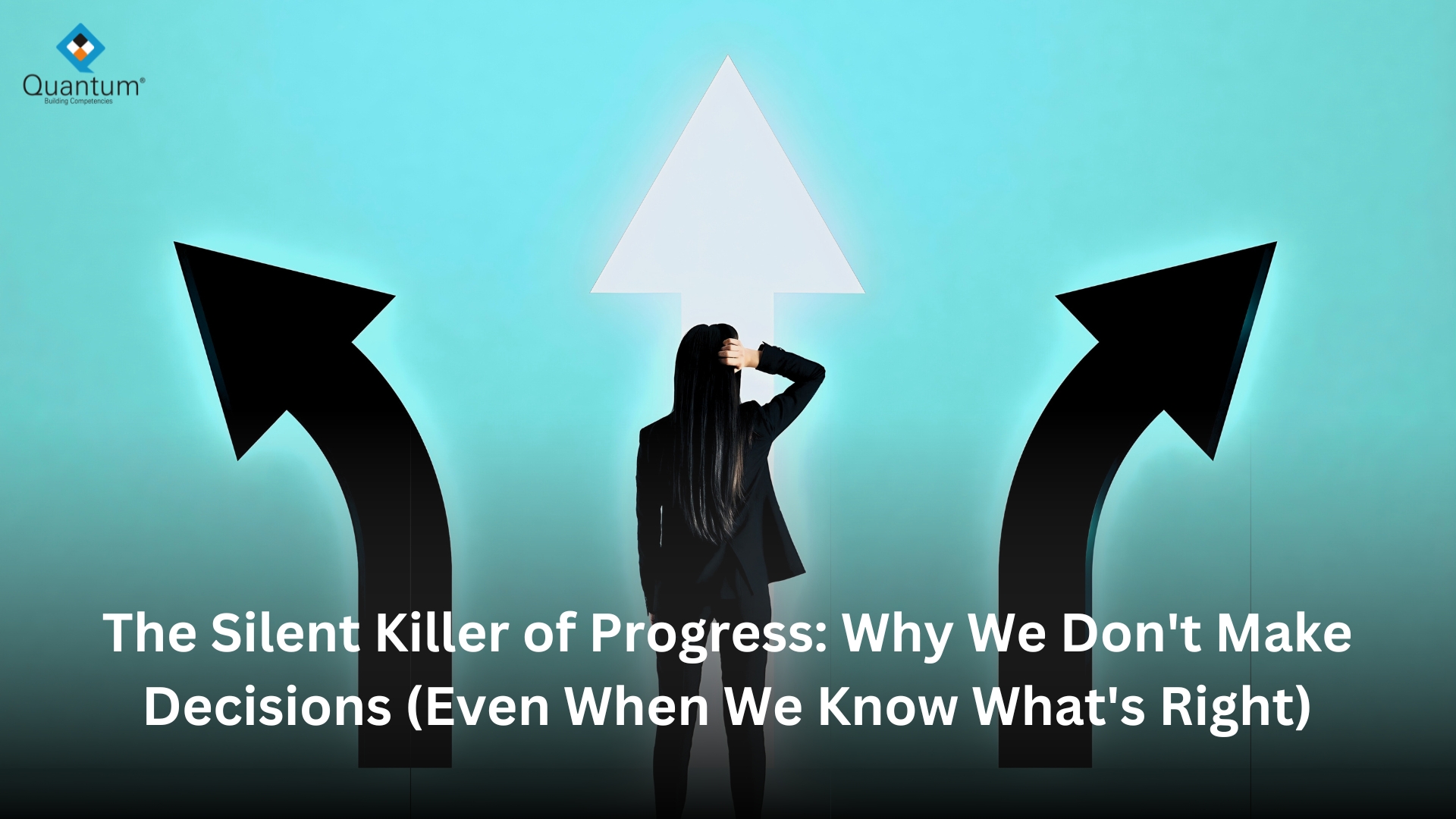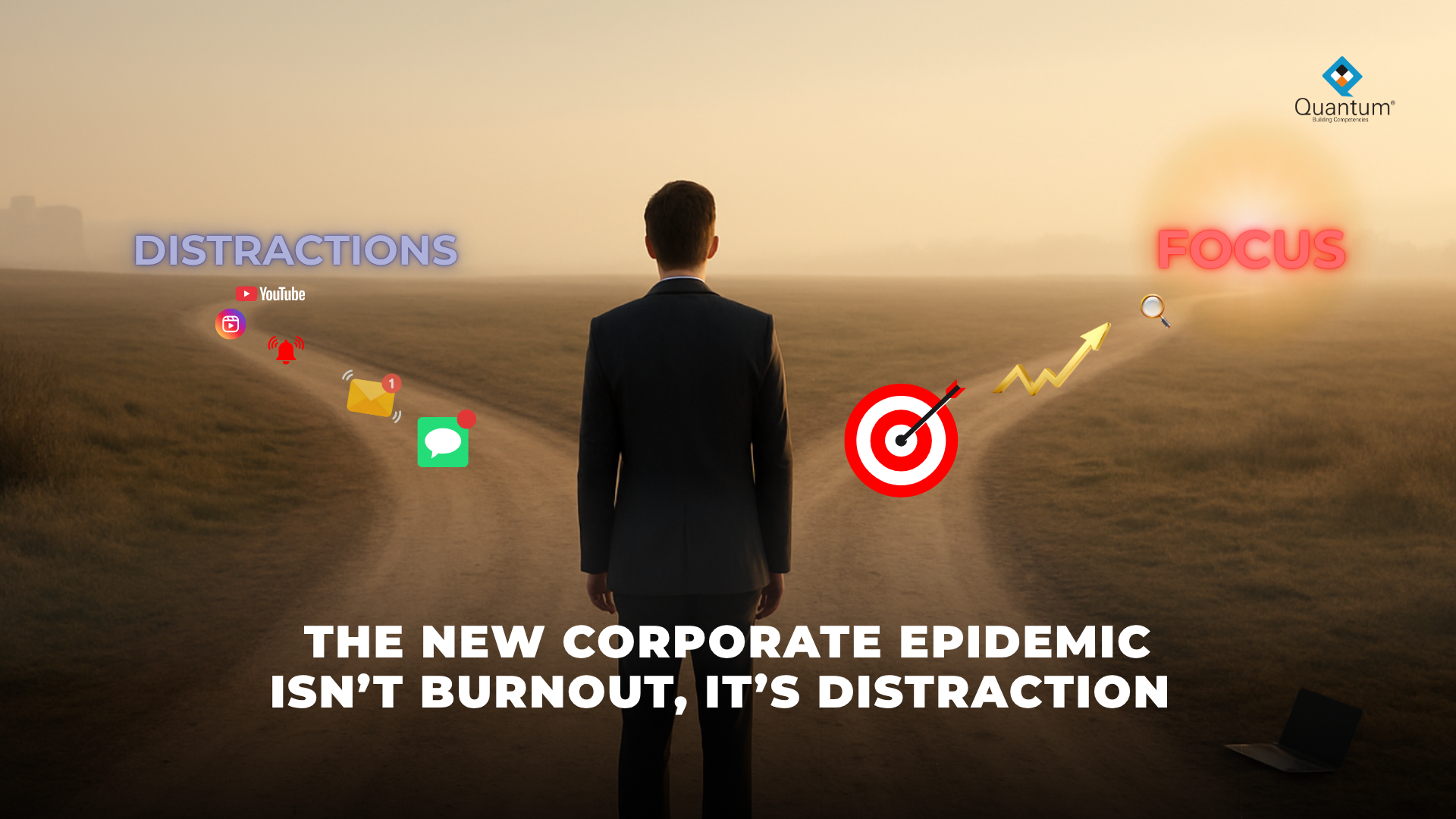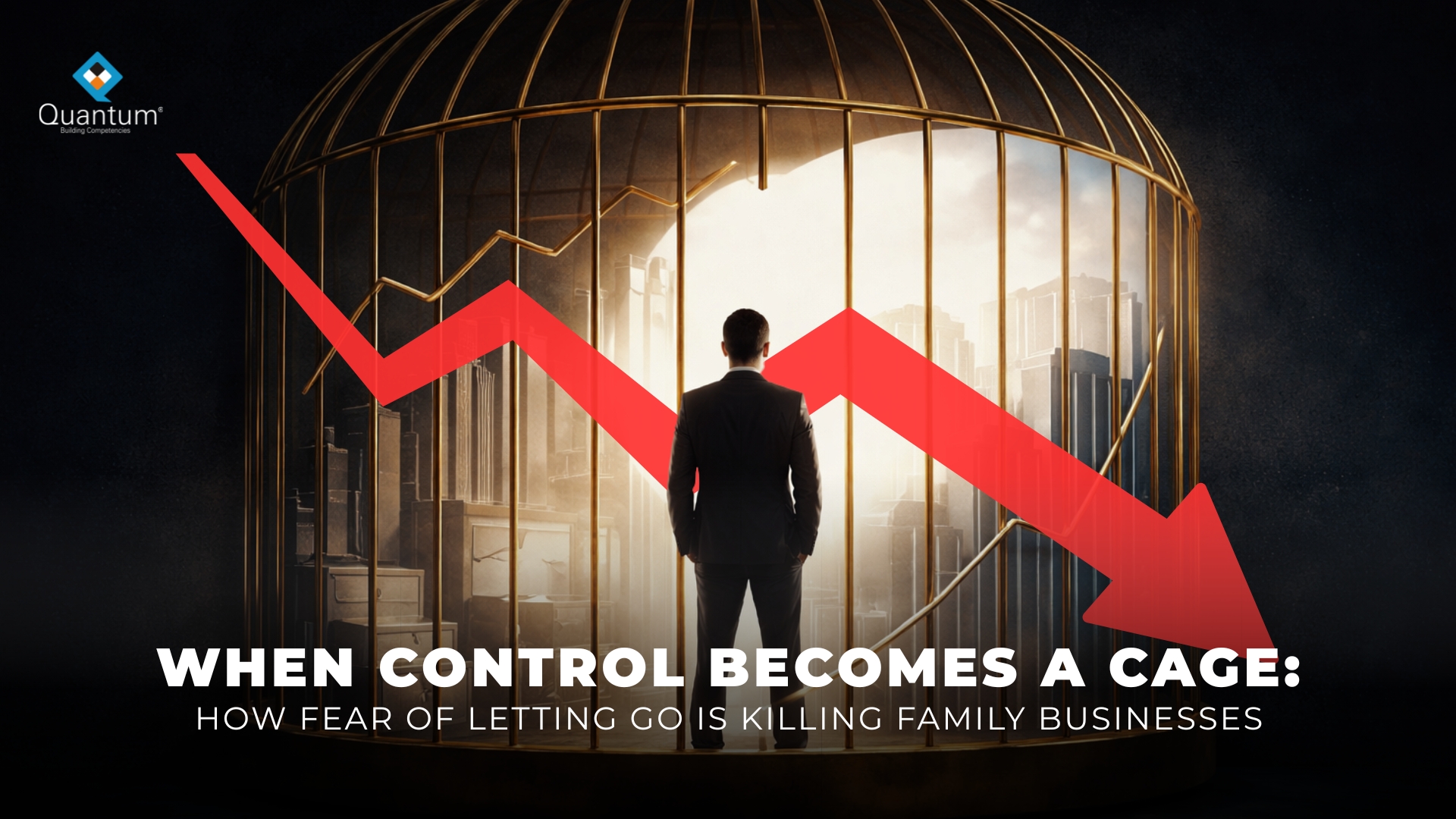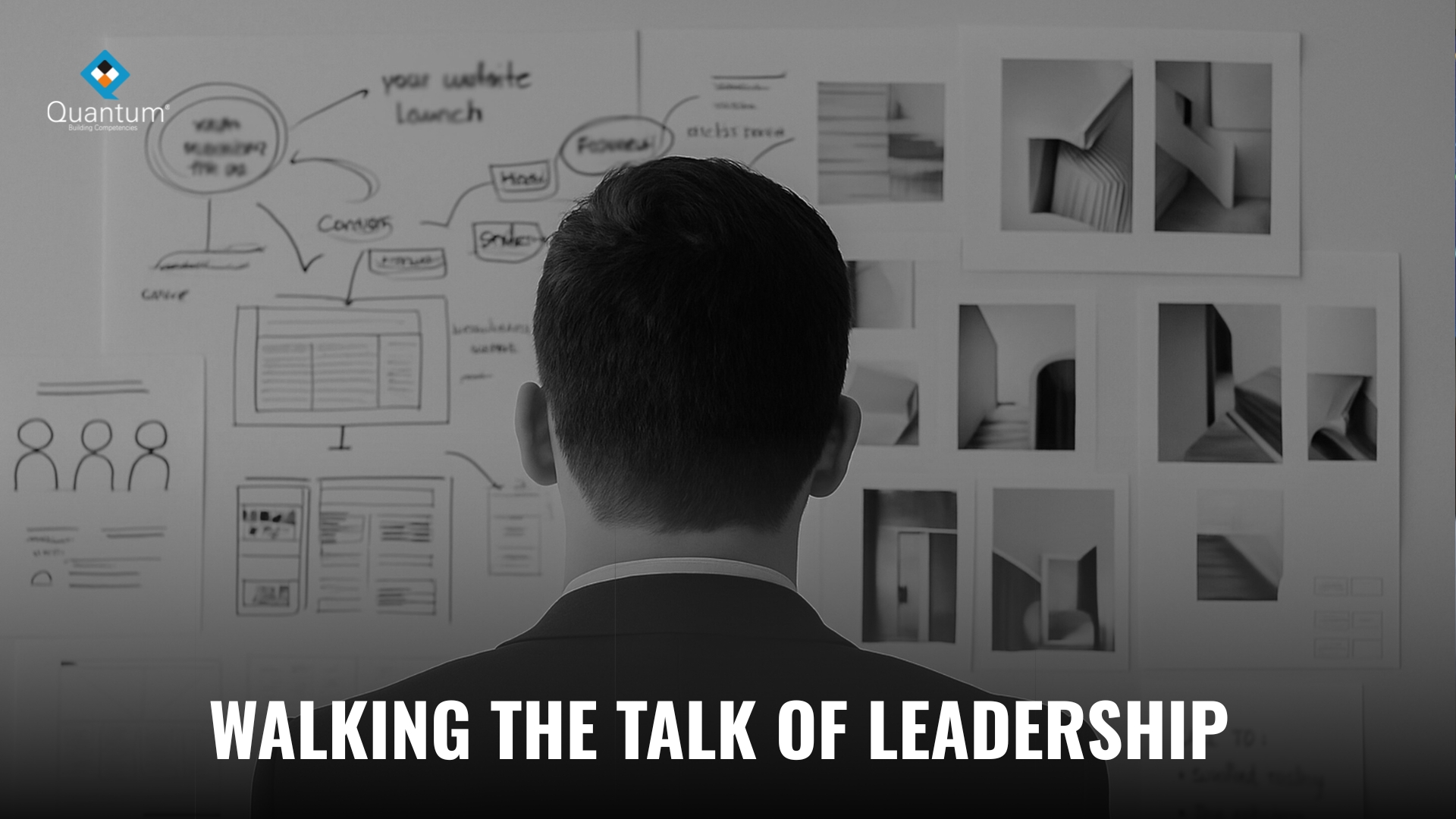
The Silent Killer of Progress: Why We Don’t Make Decisions (Even When We Know What’s Right)
The Monday Morning Meeting, Scene 1 CEO: “So, are we going to go ahead with the launch of the new

Scene 1: A modern office on a Monday morning
Manager: “Hey, do you have time for a quick call?”
Worker: “Of course.” Right after my wellness session, stand-up meeting, LinkedIn post, two team syncs, and coffee catch-up.
“Next year?” asked the manager.
Welcome to the age of distraction, where being “busy” is a brand, multitasking is a badge, and mental tranquilly is hard to find.
People are always looking for equilibrium, yet few can remain still long enough to find it.
In my book “Navigating Through Emotions,” I said that we live in a time when emotional tiredness isn’t produced by hard labour, but by not being able to pay attention to one thing for very long.
We are not overworked; we are overstimulated.
The Lie About Lifestyle
We developed a life that looks beautiful on Instagram but feels empty in real life somewhere between “hustle culture” and “self-care Sundays.”
We call it networking, but really it’s just looking at great things that have been chosen for you.
We call it wellness, but really it’s checking your email while doing yoga.
We term it “work-life balance,” but really it’s just answering Slack messages while you run.
People are donning masks of calmness, but behind the grins and filters, emotional weariness is the new uniform.
I stressed in “Mastering Emotional Intelligence” that emotional maturity is defined by awareness, not action. But in today’s business world, noise drowns out awareness. We judge performance by presence, which means being present in every virtual window, not being mindful.
Scene 2: The Productivity Show
Team Lead: “Today, let’s focus on deep work!”
Employee: “Of course.” But first, there are status updates, calendar invites, birthday wishes, feedback forms, HR questionnaires, and the team’s new dance video.
Team Lead: “Yes. Are you going to do deep work tomorrow?
Employee: “It’s town hall day tomorrow.”
Distraction is now a part of our institutions. Collaboration has become a way to make meetings pointless, messages without context, and deadlines without direction.
We’re making ourselves mediocre by doing too many things at once.
A research I quoted in “Navigating Through Emotions” indicated that any interruption, even a one-minute diversion, can take up to 20 minutes to get your mind back on track. Still, we brag about how we can handle 12 tabs, 3 conversations, and a Zoom call at the same time.
What happened? Busy brains, bored hearts.
Scene 3: Overdraft of Feelings
Today, working for a company feels like operating on emotional credit.
Every ping needs to be looked at. Every alert seems important. It seems like every view online is a personal judgement.
Colleague: “I saw that your rival was on Forbes.” How do you feel?
You: “Motivated.”
(Translation: I’m starting to panic a little and wonder about my life choices.)
Colleague: “You need to post more on LinkedIn.”
You: “I will.”
(Translation: Now I’ll spend three hours overthinking captions and feel bad about myself no matter what.)
We thought that being seen was the same as being valuable.
In “Mastering Emotional Intelligence,” I said that setting limits is the first step to controlling your emotions. But in today’s hyperconnected work atmosphere, limits are seen as unambitious. The message is clear: If you want to be seen, you have to be available.
The Stress of Performance (and How Others See It)
To be honest, a lot of the tension we feel isn’t because of job.
It’s all about how it looks.
We work all day, every day, both at work and online.
We judge how valuable we are by how many likes, titles, and “reach” we get.
In the past, goals drove the business world. Now, algorithms do.
Boss: “You need to be seen more.”
Employee: “So you want me to post more and work less?”
Boss: “Both would be best.”
This need to be seen, affirmed, and “on” all the time is slowly killing our creativity and authenticity.
“When you’re always performing, you forget how to feel,” I wrote in Navigating Through Emotions.
Scene 4: The Illusion of Health
Wellness programs are, of course, the cure for corporate life.
Workshops on meditation. Mindfulness problems.
All planned to fit in between 17 back-to-back meetings.
HR: “Please come to the digital detox session.”
“Sure,” said the employee. “On Zoom?”
HR: “Yes.” With your camera on.
We don’t need more wellness sessions; we need less disorder.
We don’t need additional balance instruments; we just need to be able to breathe.
It’s not about spa certificates and scented candles that really make you feel good.
It’s about societies that don’t see being tired as a sign of dedication.
As I typically tell people who read Mastering Emotional Intelligence:
“Emotional health isn’t a luxury; it’s a basic need.”
The Key to Moving Forward: From Distraction to Depth
We can’t get rid of all distractions, but we can learn to pay attention to the things that count.
This is how:
Make digital limits. Don’t let notifications rule your life. Silence is power.
Change what it means to be successful. Choose depth over display and purpose over presence.
Make space for emotions. Give your brain a break between tasks.
Take a break to reconnect. Ideas that are great come to people when they are alone, not while they are on Teams calls.
Make slow thinking normal. Productivity isn’t about how fast you work; it’s about how clear you are about where you’re going.
Last Thought
We often say, “Time is money.”
But really, attention is the new money.
And we’re wasting it on things that look like progress but are really just distractions.
The current corporate lifestyle is quite good at making people look successful, but it slowly takes away their souls.
We need to get back our tranquilly, attention, and emotional bandwidth.
Because I said in Navigating Through Emotions:
“The world doesn’t need smarter people. It needs calmer ones.”
And that starts the day we cease thinking that movement means something.
© Dr. Pratik P. SURANA (Ph.D.)
Quantum Group.
#LifestyleDistraction #CorporateCulture #EmotionalIntelligence #DrPratikSurana #QuantumGroup #MindfulLeadership #WorkplaceWellbeing #FocusMatters

The Monday Morning Meeting, Scene 1 CEO: “So, are we going to go ahead with the launch of the new

Scene 1:The Sharma & Sons Pvt. Ltd. boardroom on Monday morning Arjun, the son, said, “Dad, I think we should

“Culture eats strategy for breakfast.” What most leaders forget is that culture eats leaders first. Peter Drucker articulated this decades